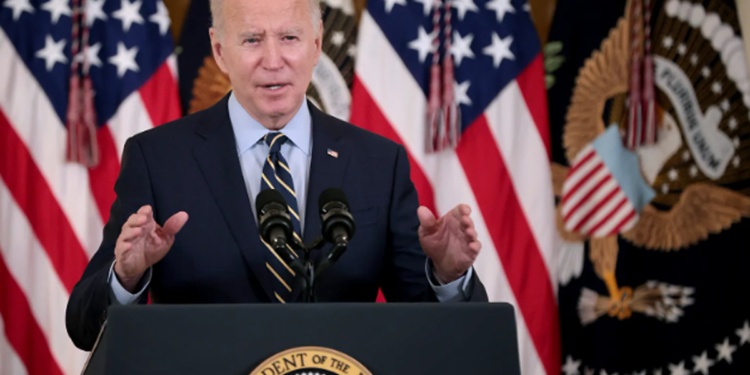If President Biden directed half of his efforts towards securing the southern border as he does towards transferring the debts of American college graduates to taxpayers, the influx of illegal immigrants would have significantly decreased by now. During an event in Los Angeles on Wednesday, the president revealed plans to cancel student loans for an additional 153,000 borrowers, ultimately shifting the financial burden onto those who did not take out these loans, costing $1.2 billion. This follows a previous loan cancellation for 74,000 individuals in January at a cost of $5 billion, totaling over $130 billion spent up to that point. According to Penn Wharton records, it is projected that President Biden will have allocated $475 billion towards this program by its completion. This manipulation for political gain has resulted in an unprecedented exploitation of many for the benefit of a few.
Last year, the Supreme Court ruled that Biden’s attempt to forgive up to $20,000 for each borrower in the United States was unlawful, a fact Biden was well aware of. Surprisingly, he defiantly responded to this criticism by promising to explore alternative methods to reach the same goal. Subsequently, Biden informed the impacted students via an email saturated with personal pronouns such as my and I, signed by Joe Biden but without any mention of Congress or legislative involvement. This departure from the expected functioning of the U.S. government is particularly concerning given the transfer of nearly half a trillion dollars from one group of citizens to another. At best, Biden has managed to achieve his objective incrementally after being blocked from doing so all at once. At worst, he is disregarding his oath to uphold the Constitution. In any case, it is a disgraceful display – especially considering it comes from a president who pledged to uphold American norms.
The decision to provide extensive subsidies to college graduates is nonsensical, especially considering the current economic climate post-Covid-19. President Biden often emphasizes the importance of looking at where budget allocations are made to understand true priorities. With the national debt exceeding $34 trillion and a projected federal budget deficit of $1.5 trillion in 2024, it is perplexing that the administration’s focus remains on providing financial assistance to individuals who have already obtained a college education. Despite data showing that college graduates generally have better job prospects, health outcomes, and relationship stability compared to non-graduates, the government spent billipons during the pandemic on suspending student loan repayments unnecessarily. Now there are talks of doubling this amount with a proposed amnesty program, which seems unwarranted given the existing financial challenges faced by the country.
Biden’s unwavering dedication to this particular course of action remains shrouded in mystery. While he claims in his letter to be aiming to address issues with student loan programs, there has been no tangible progress on this front. He has not taken any steps to lower the exorbitant costs of higher education, nor has he proposed any meaningful changes to the system. His efforts have solely focused on the current group of debtors, neglecting broader reforms. Despite acknowledging that debts can hinder opportunities, he fails to apply this reasoning to other forms of loans such as business loans, mortgages, and car payments. It appears that Biden’s singular focus is on college and graduate students, who hold a majority share of student debt. This fixation suggests that his primary goal may be bolstering his political support during an election year rather than genuinely addressing the issue at hand. Ultimately, there will be consequences for this approach – consequences we are already beginning to experience.

